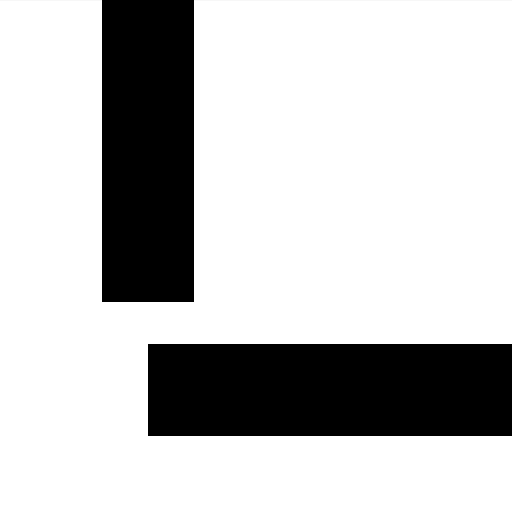
Interpraxis
This research platform houses initiatives and projects that reflect on contemporary culture and arts in order to understand, develop and contextualize artistic practices as transmedia and post-media practices.
The artistic practice finds itself in the midst of many diverse practices: aesthetic, social, political, reflective, acting, doubting, knowing. Interpraxis is a reflective and artistic environment that stimulates individual researchers towards trans -and post-medium thinking and offers them expertise and a critical horizon.
Current projects
In the zone of the Science Fictional (2021- 2023)
Researcher : Welsey Meuris
An accumulation of seemingly scientific facts (historical and technological) often conceives an overly one-sided view on future thinking. This research wants to examine how specific narrative techniques can be used to cast an accessible yet critical light on sometimes too plausible scenarios. Speculative design, fictocriticism, design fiction, potential history, science fiction… are some of the techniques that can be used experimentally to reconsider deeply rooted relations to scientific progress. Science fiction can offer the possibility of presenting things differently than they appear, perhaps closer to what they actually are. Furthermore, science fiction can be used to explore the limits of what it means to be human when confronted with the non-human. Which artistic processes and constellations allow us to reconsider common chronologies? How can new and alternative narratives reposition the current configuration of science and technology?
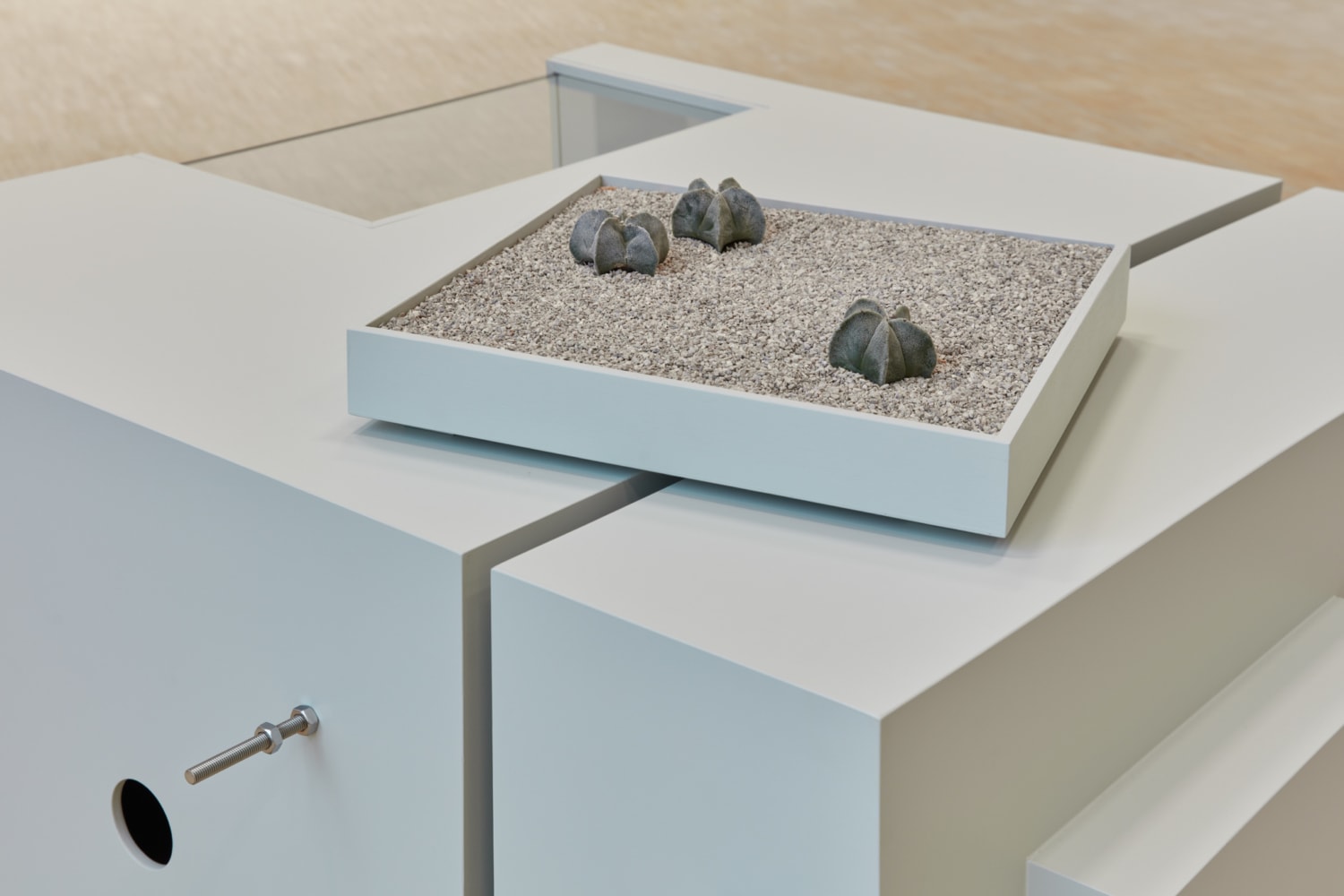
Women versus the void – apocalyptic feelings and healings in custom everything (2021- 2022)
Researcher : Helen Dowling
Informed by science fiction literature I investigate whether I can use the analogy of the apocalyptic within the mundane to carve out space for and frame expressions of female frustration and sexuality. In practice this space will be within the sphere of custom pornography. I will be working with a professional pornographer from this field. In doing so, my aim is to produce content that derives representations of female sexuality from the particularities of custom porn, in visual, technical, and ethical terms.
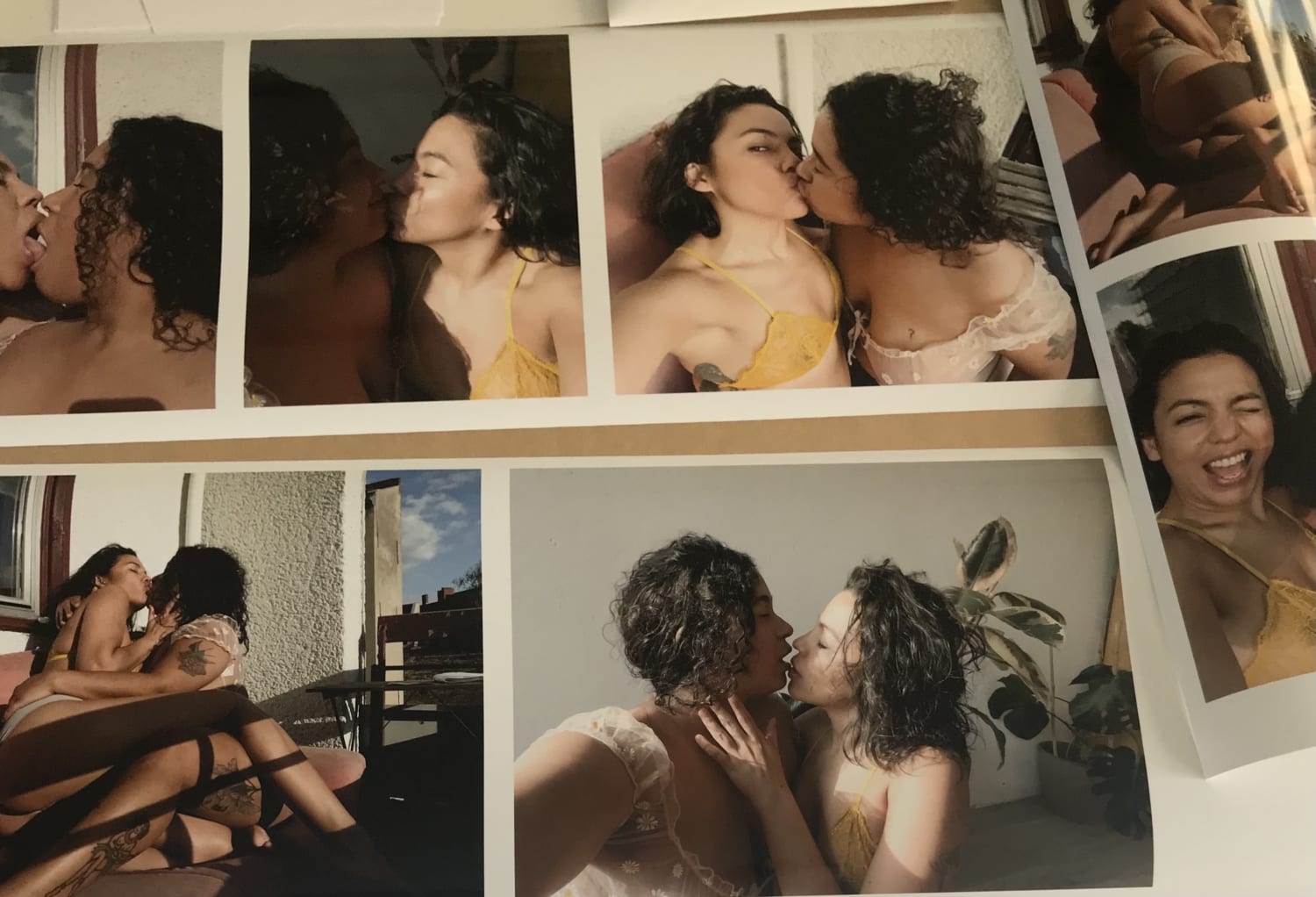
Sharing Tools and Strategies for Transformative Art Collaboration (2021- 2022)
Researcher : Marnie Slater
This research emerges from challenges I experience though my collaborative practice within the visual arts. Namely, that although there is an increasing interest in collaboration as a transformative practice, artists are under-tooled to work together. I will ask: How are artists who practice together embedding their aims within their collective working methodologies and how can I gather and share these tools and strategies with others?
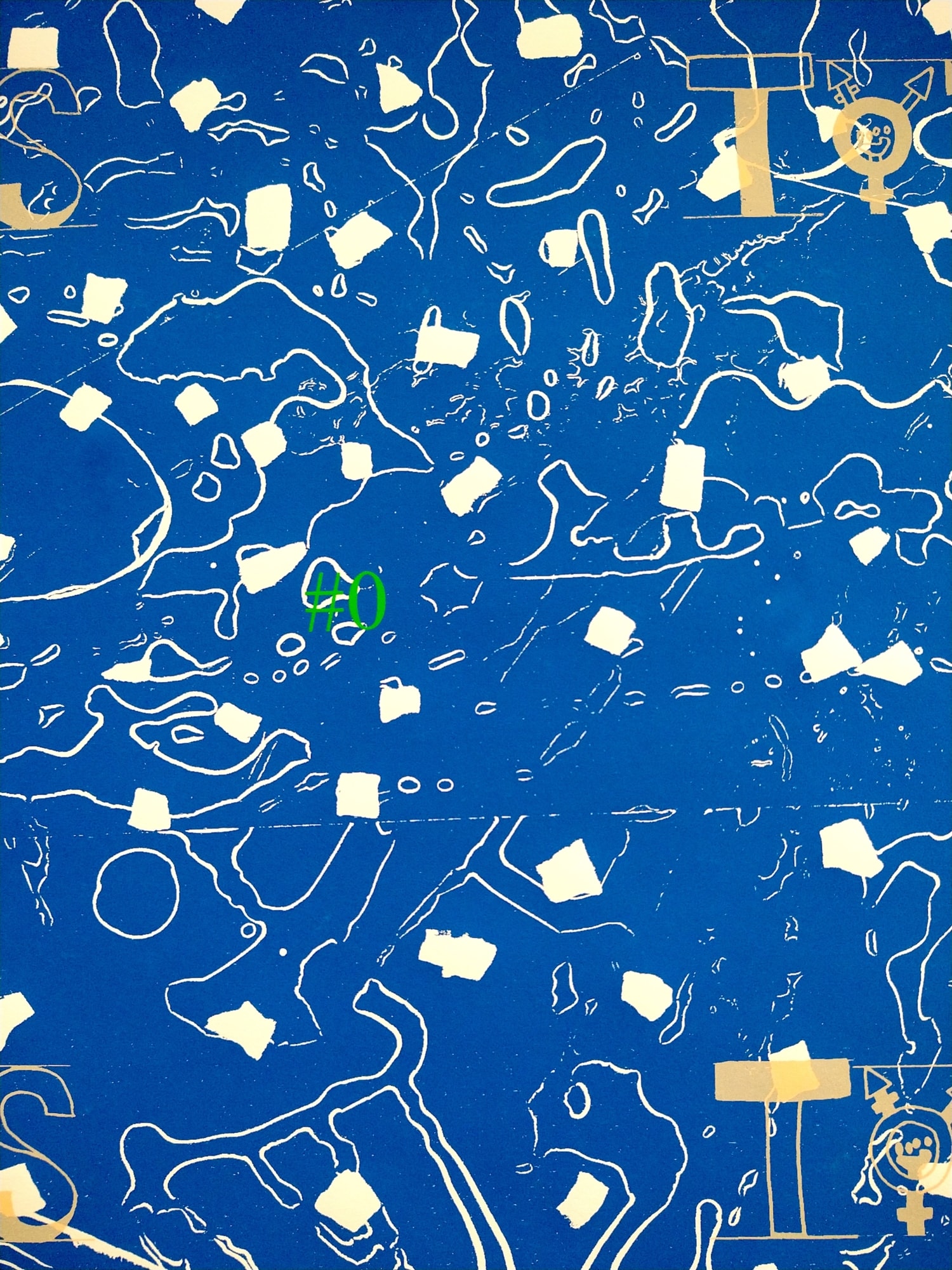
A colour photograph of a screen printed paper surface. The paper is printed in bright blue, with white patterns. Over the pattern in the top right and left corners, are parts of hand-drawn words printed in light peach. On left is the letter “S” and on the right are the letters “TO”, with the “O” rendered as the transfeminist symbol. In the bottom left corner is the number “#0” printed in bright green.
Singing the silences (2020-2021)
Researcher : Hoda Siahtiri
The songs of nomadic women of Bakhtiari, freely express the emotions and opinions of their female creators concerning different aspects of their daily lives. Through this research, I float in the fluidity of the songs of Bakhtiari inhabitants of Zagros mountains in west of Iran.
By mediating the processes of embodiment and transformation of the possibilities and the qualities of resistance in the repertoire of Bakhtiari songs against the ordeals of patriarchal social system, I propose to experiment with forms of embodied sonicity of resistance in performative audiovisual forms.
Engaging in this work, not only allows me to incorporate my own personal ancestral relations in Iran through the practice of singing, but also allows me to reconsider my situation as a displaced body in the heart of Europe, in Brussels. What bridges both is an embodied practice of survival in a society in which dominant voices mute and silence fragile narratives and ways of being, sensing and feeling. Together they push my research into poetic approaches of resilience to speak, narrate, voice and sing the silences I inherited.
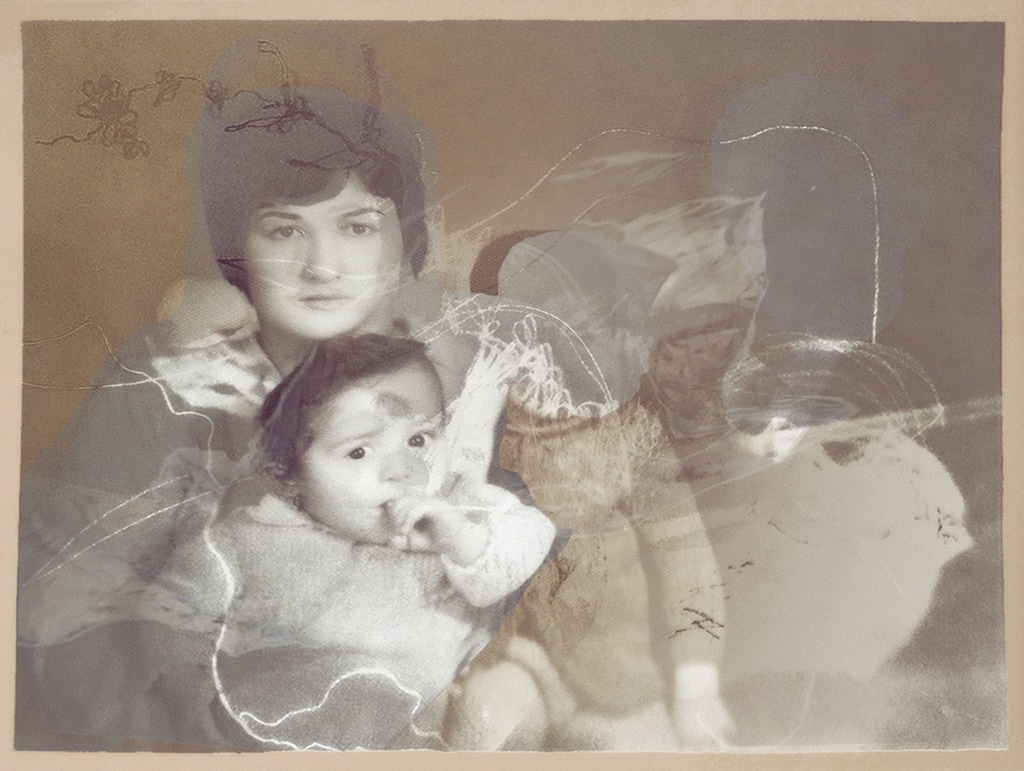
Play-white : racial passing and embodied images (2020-…)
Researcher : Bianca Baldi
This research introduces a critical approach to “racial passing” and its complicity with image production. Someone who can pass for white is socially designated as one racial construct but performatively plays out whiteness. Passing complicates our current understanding of visual production and categories of identity.
Through my image-making practice, I reflect upon a visual history of racial passing in the South African context. By looking at the United States context I will establish synergies with the South African one to broach the absence of formal discourse. Through a reading of popular culture and literature, I clarify a contemporary position on the visual production of passing.
Play-White is a meditation on passing, embodiment, self-presentation, and the aesthetic thresholds of identity.
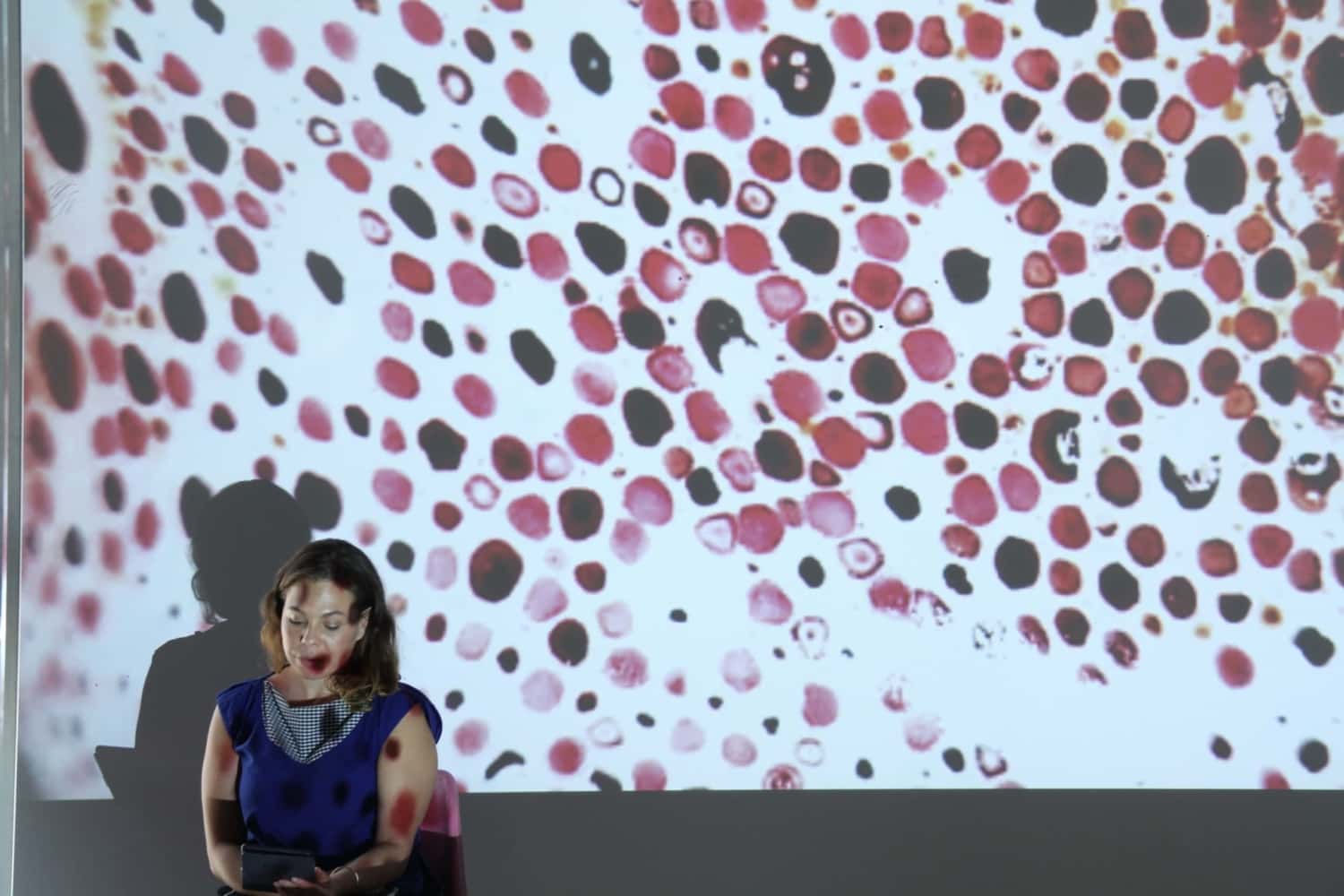
Disarming Design from Palestine
Researcher : Annelys De Vet
The PhD research project “Disarming Design from Palestine” questions how design can be a vehicle for empowerment and solidarity in conflicted realities. How can one through the practice of design develop sustainable positions in fractured societies? Building upon relations of trust and long-term involvements in Palestine, Annelys de Vet will analyse, define and design the conditions for design to have a social, political and eman-cipatory impact. A concrete goal is to develop, in close collaboration with local partners, new forms and platforms for design education, collaboration and exchange in Palestine, reinforcing the economic, political and artistic sustainability of designers.
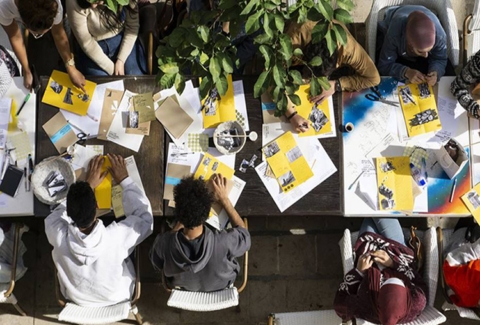
The Performative as a Tool – Haunting Histories (2018-…)
Researcher : Paul Hendrikse
The Performative as a Tool – Haunting Histories is researching how the body and language are tools for artistic production. During the last two decades artists shifted their mode of production and became more research-based. Documentary, research, journalism, literature, the body and language have become tools for artistic production. But how can I think the performative gesture further? What potentialities does it have and what is the full realm of its use? Can I direct my practice towards a mode that allows the works to become reservoirs of potential future action, as prompts for the audience or artist activity, and even as actors?
Toward a Poetics of Close-To-Each-Other (2018-…)
Researcher : Robin Vanbesien
Toward a Poetics of Close-To-Each-Other consists of questioning, testing and developing methodologies on three levels throughout several artistic projects:
(1) How to develop reflexive co-creations with the social groups/movements concerned?
(2) How to create an artistic work that re-grounds these processes of co-creation while tying practices of consciousness-raising with the artistic means of expression?
(3) How to construct a collaborative and sustainable system of reception and reflection for the practices of co-creation and the presented artistic work?
Contemporary Kasala and Lukasa: towards a Reconfiguration of Identity and Geopolitics (2019-…)
Researcher : Sammy Baloji
This project aims to create new memory devices, based upon two existing devices used by different Luba groups living in the DRC:
– kasala is a ceremonial poem, sung or recited by Luba in the provinces Kasai Occidental and Kasai Oriental and Sankara, that serves as a public and solemn way to pay homage to and laud the actions and accomplishments of kings, chiefs, lineage heads and other types of public figures;
–lukasa is a memory board used and ‘read’ in a ritual performance by Mbudye, an association of men, responsible for the transmission of historical knowledge at the court of Luba kings, situated in the former province of Katanga.
These two different Luba groups were divided during the colonial era by boundaries between the former provinces of Kasai and Katanga. Descendants of Luba groups from Kasai who live in Katanga are now often considered ‘foreigners’ by those who claim to be the ‘original’ inhabitants of Katanga. The art works to be created are meant to bring these groups back together through a narrative that is part personal, part historical, par fictitious.
Past projects
Terms of Intimacy, an abstract (2020-2021)
Researcher : Helen Dowling
This research taps into one of my overarching interests in digital culture, namely, the impact distribution systems have on the production method and content of accessible digital imagery.
Terms of Intimacy specifically addresses and critically engages with the custom pornography industry, analysing and looking at how to incorporate its production structures into the realm of video art and repurpose its acting into new divergent narratives. What aspects of contemporary pornography prejudice the body and where do they originate from? Can they be subverted in video art to re-articulate the feminine in light of the pornographic? As a video artist, my aim is to create an extricated rendition of the sexual in moving image production, one that addresses an affinity to the individual.
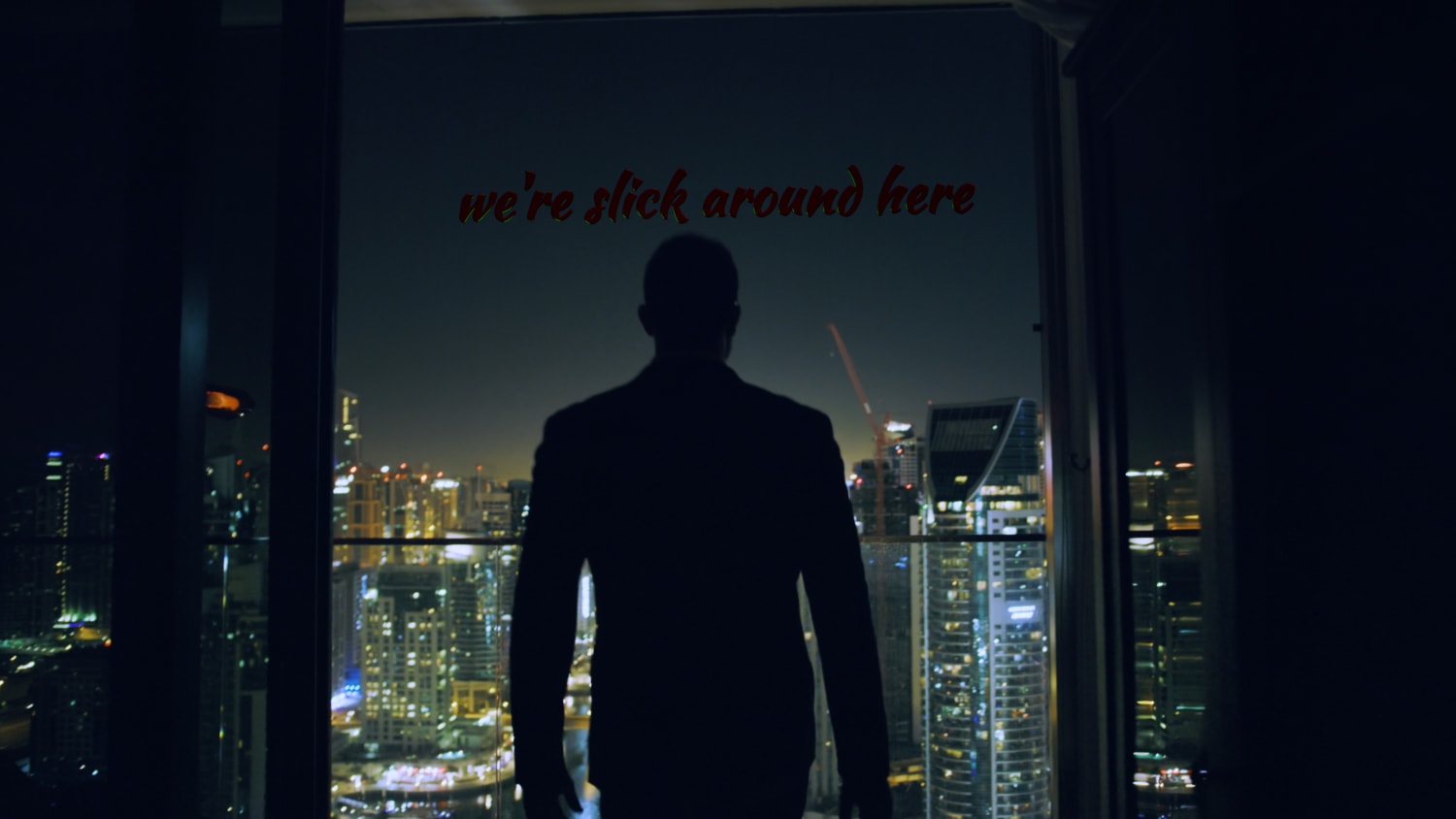
The (bureau)creative Climate (2016-…)
Researcher: Sarah Hendrickx
The (bureau)creative Climate focuses on the Research Centre on Creative Abilities meandmywork, a center of knowledge on bureaucreativity. In order to survive within our future working environment creativity was put forward as only weapon, making the aim – to increase the personal level of creativity – profoundly popular for misuse by a capitalist system. mamw became a metaphor for a world where creativity is a pill one can simply take to become successful. The research learns from existing bureaucreative structures and visualizes its methodologies within the fictional Research Centre.
Learning from Queer, Feminist and Decolonial Activism (2020-2021)
Researcher: Marnie Slater
As a visual artist, I have both a solo art practice, and a series of long-term and short-term collaborations that are committed to self-organizing. My participation in collaborative art practice is motivated by a desire to form a queer, feminist and decolonial position, and an urgent sense that this can only be done from within the relational politics of a collective. In my experience, however, visual arts institutional structures often struggle to provide channels that can accommodate or inform the processes we need for queer, feminist and decolonial collaborative work. Within this research I will analyse the collaborations I am directly involved in and look to specific forms of feminist, queer and decolonial activist organizing to ask: Can activism, a field often considered as adjacent to the discourses of contemporary art making, provide practical process tools for artistic collaborations? This research will examine the ways that we, as queer, feminist and decolonial art collectives, can define our own processes, ethics and ways of relating with each other in order to denaturalize and confidently resist conventional working methodologies.
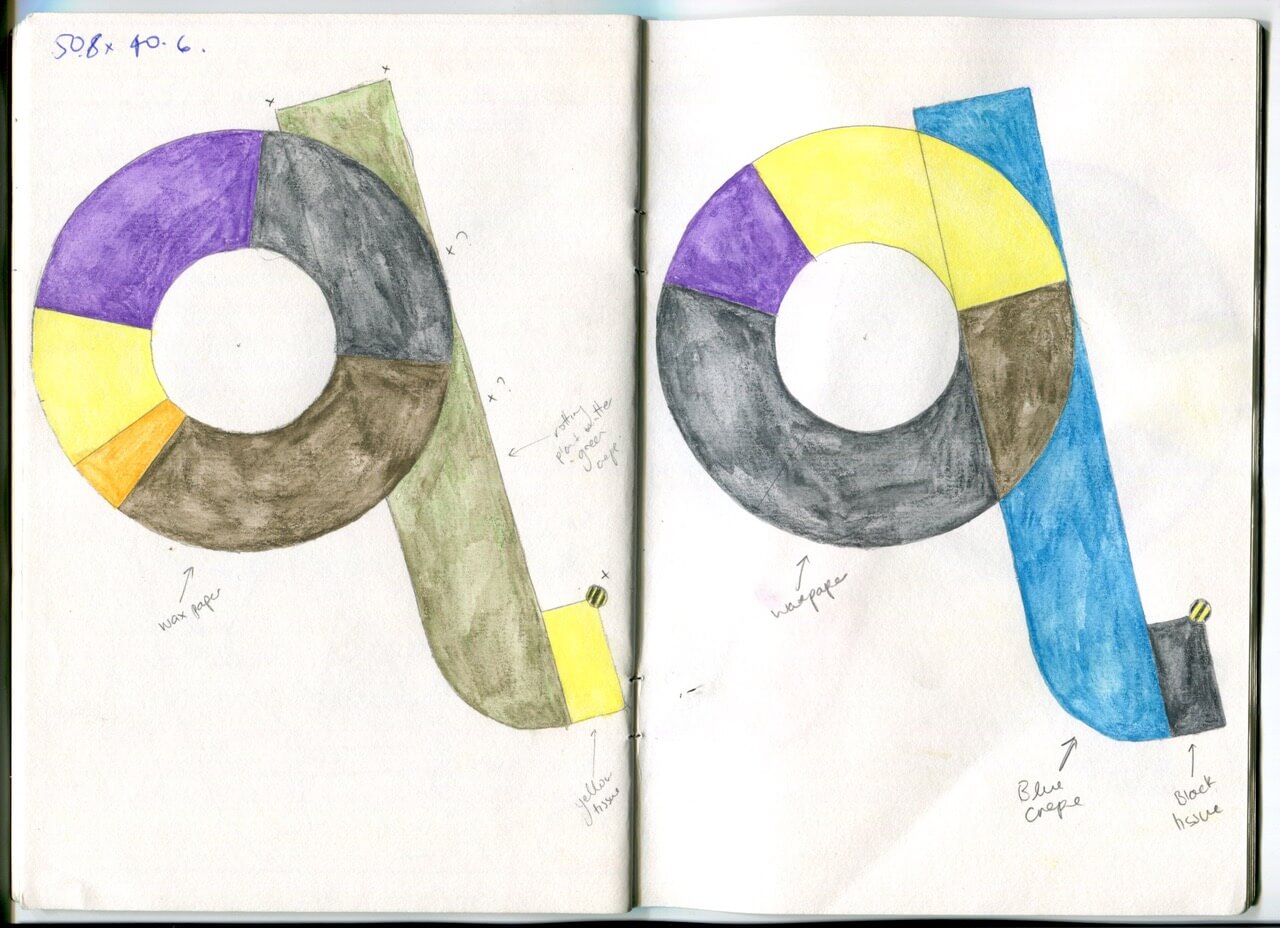
Titel Unfolding (2019-2021)
Researcher : Dr. in the arts Wesley Meuris
This research wants to unfold the phenomenon of ‘exhibiting’, in and beyond the sphere of the arts. Within the area of natural history, anthropology, technology and even speculative sciences remarkable forms of presentation have been developed to convey insights on knowledge. A historical context will be set to reflect on theoretical and artistic positions in the field of display. Contemporary art projects will be viewed to examine common exhibition formats, as well more complex exhibition mechanisms. How does a work of art communicate with its own exhibition context? And in extend, how can this dialogue be incorporated in the work itself? Which parameters of exhibiting allow being absorbed through the work itself? How can a curatorial narrative be implemented in a work of art? What would be the effect of appropriating historical exhibition mechanisms within the work of art?
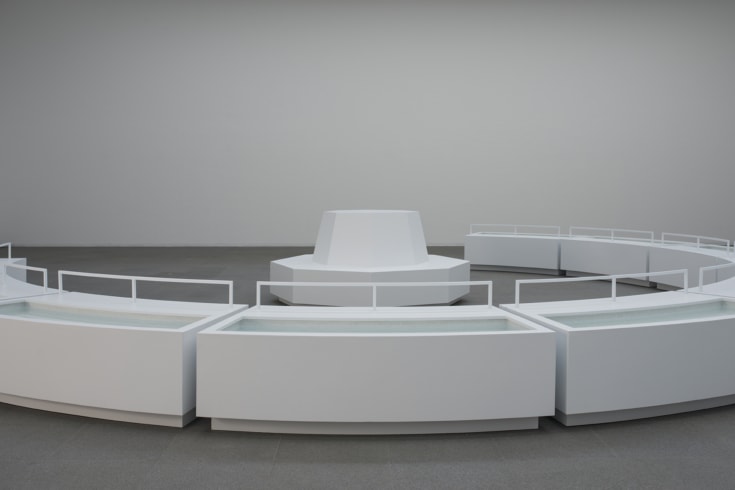
Musée des Arts Contemporains, Grand-Hornu
Photo: I. Arthuis
Strange currencies (2019-2021)
Researcher : Dr. Kim Gorus
The contemporary literary field is characterised by a revival of 19th century formats such as the Bildungsroman, the travel story or the (auto)biographical novel. This stands in strong contrast to the literary form-experiments from the 50ies and 60ies, that explicitly tried to achieve a rapprochement to the visual arts and wanted to sever itself from the novel as a bourgeois genre. There are, of course, exceptions to this rule, but in general we can assess a return to traditional narrative formats in the field of literature.
At the same time we can discern a growing attention for literary fiction within the domain of the visual arts as of the 80ies. The so-called ‘iconotextual’ book experiments from the 60ies have, thus, been continued in the visual arts, contrary to the field of literature, albeit in a very different form. Visual artists increasingly integrate publications as well as (literary) fiction in their work, whether or not as part of an exhibition. In a certain sense it seems as if literary innovation has cut itself loose from the field of literature and has infiltrated in the domain of the visual arts.
This research project wants to study a limited corpus of artist’s publications and analyse how these publications challenge both literary as well as artistic categories and formats. The main focus will be on instances of historiographic fiction and visual writing.
The Archives of the Tout-monde. In search of refuges for subversive aesthetic experiences (2019-2021)
Researchers : Joachim Ben Yakoub, Naïma Moldenhauer & Reem Shilleh
The action research ‘The Archives of the Tout-monde’ wants to engage with post-disciplinary visual praxis of artists and collectives in urban informal networks, outside the regular arts field.
Through the establishment of localized refuges that can facilitate subversive aesthetic experiences, it will analyze how regular institutions relate to this visual praxis.
Special attention for the relational, economic and ecological core of these land-shifting practices will contribute to the current research on the (under) commons.
Balancing between the sometimes counterproductive desire for visibility and the power of the invisible, aesthetics from the archives of decolonization and transnational solidarity are reactivated.
Boundaries are troubling, artists become curators and curators artists, as a result, the created spaces become works of art with their own sensiblities. From this shift, there is space for researching collective decolonial curatorial practices that, from the bottom up, blow life back into the apparently timeless still life of the visual arts.
Cue: Instruction as Artwork (2019-2021)
Researcher : Dr. in the arts Steve Van den Bosch
Research in visual arts practice on the possibilities and implications of instruction as a work of art in dialogue with, but also beyond the history of conceptual and post-conceptual art, with particular attention to Eastern Europe.
The instruction will be viewed from other disciplines such as film studies, philosophy and psychology to arrive at a deeper insight and produce works that reflect the complexity of the instruction in contemporary art from the specificity of my artistic practice. In doing so, I will mainly focus on the tension between the instruction and its tangible or intangible result. The shifting roles of author, performer and audience are also of central importance, which also involves the investigation of intention, visibility, consciousness, interpretation and social context.
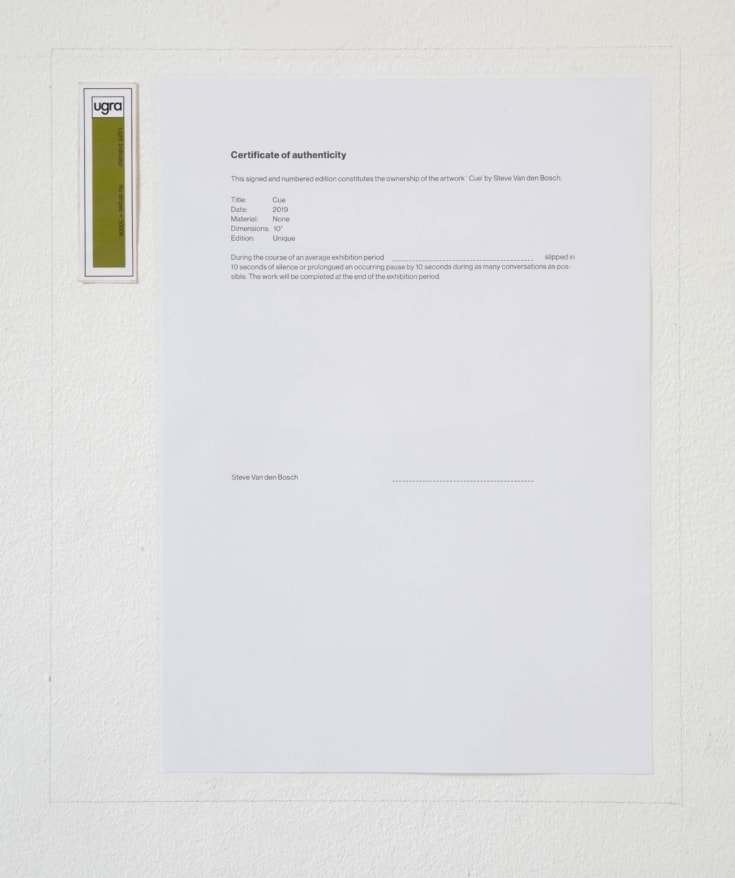
Plot(less)
Researchers : dr. in the arts Steve Van den Bosch, drs. in the arts Paul Hendrikse, dr. Kim Gorus, drs. Joachim Ben Yakoub
Stories are everywhere. What is narrated, exists. Reality is fictionalized. Contemporary art theory and art practice centers on narrative strategies and structures. Narrative strategies seem to be pre-eminently suitable to question the borders between fiction/non-fiction, truth/perspectivism, identity/performativity. Narratives become a means to install the complexity and contradictions of things. Narration offers the possibility of migrating between positions. It is also a way to realize a ‘poetic hauntology’ echoing multiple voices of the past into the present. Narrative strategies also refer to ‘democratic reiteration’ by means of retranslating concepts, ideals and stories and democratizing and redefining fixed meanings.
